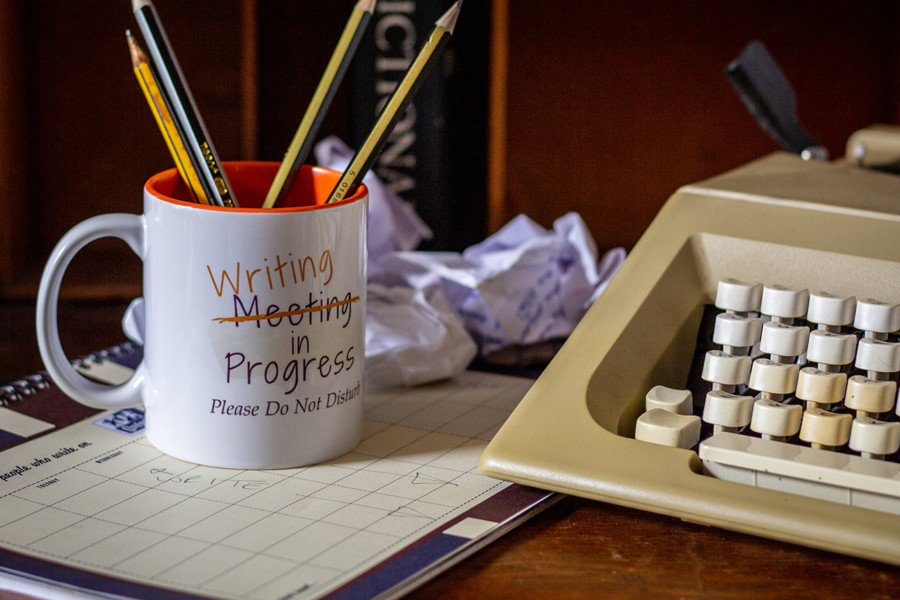It is a fact of life that if you want an academic job you need to publish. For most early career academics, or PhD students contemplating academic careers, this means thinking about your dissertation. This post looks at the options: book or articles; and what kind of articles.
Read More »Communicating scholarly knowledge
 Publishing is an important part of your work as a scholar. Posts in this category address all times of publishing, understood as making your knowledge public: more or less formal methods, publishing for scholarly audiences, publishing for wider audiences.
Publishing is an important part of your work as a scholar. Posts in this category address all times of publishing, understood as making your knowledge public: more or less formal methods, publishing for scholarly audiences, publishing for wider audiences.
For an introduction to how I approach the topic start with Communication vs Validation: Why are you publishing.
Over at the Careers Café…
As you know, I also blog for University Affairs Careers Café. This month’s post is about the need to publish to get an academic job.
Read More »Validation, communication, & academic blogging: some links
A linky post for those who are interested. There are some interesting things to be found on this topic. Michael Cholbi at In Socrates Wake drew my attention to a few in his post inviting thoughts on whether humanists are avoiding exposure (responding to Alex Reid, see below). Which led me to James Stanescu (aka […]
Read More »Collaboration, co-authoring, and such
If you are in the humanities or some social science disciplines, co-authorship is much less common and may even be frowned upon. Some humanities researchers have been heard to doubt the existence of co-authorship, “Two people cannot hold the pen.”*
If you are in this kind of discipline, writing with others can feel odd. And it raises some interesting issues about how it will be evaluated.
Why co-author? … get more written … share expertise … mentor students
How will peers view it? … separating you from your co-authors … getting collaborative grants
Read More »Validation vs communication: another example
How is it that just as I write that post about validation and how stuck it can get you, I find another relevant link: Why Lists are a Flawed Approach to Assessing Excellence
Read More »Validation vs. communication: an example
Bon Stewart made a very prescient point in the comments of my post on how scholarship is evaluated. “the notion of validity by process became more important than the idea of contribution TO the process”. This morning I was catching up on blog reading and read a very thought provoking article that I think makes excellent background to such a discussion. It’s about scientific publishing, which is the model that humanities and social science researchers are being compared to implicitly or explicitly. And it illustrates some very serious issues in relation to this question of validation.
Read More »Peer reviewed journal articles and monographs in the academic evaluation process
Jo VanEvery, Academic Career Guide · Journals and monographs in academic evaluation processes This is the 2nd post in a series on how your scholarship is evaluated in various academic evaluation processes. I was inspired by the comments on a blog post on Melville and the knowledge that some of my readers do blog and […]
Read More »How scholarship is evaluated
Jo VanEvery, Academic Career Guide · How scholarship is evaluated The quality and impact/significance of your research is usually evaluated based on where you publish. The advent of new outlets for your scholarly work has raised some interesting issues about how this is done. A blog exchange about Melville scholarship (read the comments, and also […]
Read More »Learning to use images
Moving from knowing that images do things words can do to actually using images well in presentations and other work is hard. I’ve learned a lot about that in the past year. For example, finding representational images after you’ve written the content is probably the hardest way to go about it.
I’m now figuring how to use images to help you be a better academic. If you want to help me test a new tool …
Read More »Ever wonder about publishing for a broader audience?
One of the people I’ve met on Twitter is Holly Tucker, a historian at Vanderbilt University. She’s written a history of blood transfusion called Blood Work. In the run up to it’s release she is writing about the process of promoting the book. But there is something about the transition between a manuscript to a real […]
Read More »I don’t like the term “unconference”
Call me an unreformed social constructionist but I think language has power. Calling these really cool new types of conferences things like “unconferences” “camps” and whatever just cedes the definition of “conference” to people whose primary goal seems to be to bore us to death. What is the purpose of the conference? There is plenty […]
Read More »Giving presentations: slides, visual, and handouts
It seems to me that a lot of bad PowerPoint results from the desire to have the slides work as presentations after the fact. Even worse is when the slides need to stand alone without the speaker.
I’m sorry, but if you can get what you need from the slides, you don’t need me standing up in front of you. Why waste my time and yours going through the motions?
Read More »











